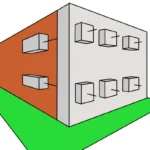What is Geology?
Geology is a scientific discipline that deals with the study of the Earth, its composition, structure, processes, and the history of its development over time. Geologists investigate the materials that make up the Earth, how they were formed, and how they have evolved over millions of years. This science focuses on understanding the internal and external dynamics of the Earth, including the formation of mountains, volcanoes, earthquakes, tsunamis, plate tectonics, erosion, sedimentation, and many other geological processes. It also deals with the interpretation of fossils and rocks to understand the history of life on Earth and how it has changed over time. Geology is fundamental for understanding the distribution and exploitation of natural resources such as minerals, oil, natural gas, and groundwater, as well as for assessing and mitigating geological risks such as landslides and volcanic activity. It is also essential for the study and preservation of the environment and the understanding of past geological phenomena that can help predict the future of our planet.
How Does It Relate to Engineering?
In the field of engineering, subjects related to geology play a fundamental role in ensuring a comprehensive and sustainable approach in various areas.
For example, in Civil Engineering, geological knowledge is essential for assessing the stability of terrains and the safety of structures, such as building foundations or bridges, thereby avoiding potential landslides or collapses that could endanger people’s lives.
Furthermore, in Mining Engineering, geology is indispensable for identifying the location and type of mineral deposits, optimizing resource extraction, and minimizing the environmental impacts associated with these activities.
Similarly, in Environmental Engineering, geological knowledge is vital for understanding soil quality and its ability to retain and filter water, which is crucial for the design of water management systems and the prevention of environmental pollution.
Likewise, in Agronomic and Agro-Industrial Engineering, geology becomes relevant when studying soil characteristics for agricultural production and the food industry. Understanding soil composition and structure allows for informed decisions on the selection of suitable crops, the application of fertilizers, and the planning of sustainable agricultural practices that preserve soil health and maximize agricultural yields.
In general, the study of geology in these disciplines provides future engineers with a solid foundation to address challenges related to geodynamics, geotechnics, hydrogeology, and other crucial aspects for the development of engineering projects with a responsible focus on the environment and society. With this comprehensive education, students are prepared to tackle the current and future challenges in their respective areas of specialization, thus promoting more efficient and sustainable solutions in the field of engineering.
What Will I Learn About Geology in My Engineering Career?
During your education in Geology for Engineers, you will explore and learn about a variety of essential academic topics, including:
- The Origin of the Universe, Earth, and Life: By understanding the Big Bang theory and the process of material accretion that led to the formation of the solar system and, subsequently, Earth, engineers gain a holistic view of the cosmic context in which terrestrial activities take place.
- Earth Sciences: In-depth exploration of the various disciplines that study the Earth system as a whole, such as Geophysics, Geochemistry, Geomorphology, and, of course, Geology, provides a comprehensive view of the Earth and its processes.
- Earth Structure: Engineers delve into the knowledge of the different layers that make up the planet, from the inner core to the Earth’s crust, understanding their physical and compositional properties that directly affect the behavior of materials and geological formations.
- Lithosphere or Earth’s Crust: The characteristics of the outermost and rigid layer of Earth are studied, including the continental and oceanic crust, as well as plate tectonics and their influence on the formation of mountains, sedimentary basins, and seismic events.
- Crystallography: Future engineers explore the science that studies the structure and properties of crystals, which are essential for understanding the composition of many geological materials.
- Mineralogy: In-depth knowledge of minerals, their physical and chemical properties, identification, and classification is crucial for understanding the composition and formation of rocks.
- Petrology: This branch of geology focuses on the study of rocks, their origin, classification, and formation processes, which is highly useful for engineers working with geological materials in various applications.
- Origin and Formation of Soils: The processes of weathering, erosion, sedimentation, and other geological factors that give rise to soil formation and evolution are analyzed, which is relevant for the planning of engineering projects in terrestrial environments.
- Internal Geodynamics: Students become familiar with the internal geological processes that shape the Earth, such as mantle convection, volcanic activity, and the formation of mountain chains.
- External Geodynamics: Surface geological processes that shape the terrestrial landscape, including erosion, sedimentation, glaciers, and landform modeling, are addressed.
Acquiring this geological knowledge is of vital importance for engineers, as it allows them to better understand the materials they work with, assess geological risks in construction projects, explore and sustainably utilize natural resources, and contribute to the responsible and safe development of infrastructure and human activities in the terrestrial environment. It also provides a solid foundation for making informed and efficient decisions in their field of specialization.

Geology Beyond Engineering
Undoubtedly, Geology goes far beyond being just another subject in the engineering curriculum. Labeling it as such would be entirely inadequate and disrespectful, as this discipline has considerable scope and depth, and its importance in the engineering field is undeniable. While it is true that undergraduate engineering students often take one or two courses related to Geology, such as Geotechnics, Soil Mechanics, or Dynamics, these forays represent only a brief introduction to fundamental concepts and techniques applicable in each specific field.
Geology, far from being a mere supplement, represents a complete and highly rewarding professional career. Its focus goes beyond the mere study of rocks and minerals; it centers on the profound understanding of the Earth and its processes, considering the interaction of geological elements with the environment and society. Geologists, with their solid training, play an essential role in the identification and characterization of natural resources, the assessment and mitigation of geological risks, the planning and execution of infrastructure projects, and environmental preservation.
It is important to emphasize that Geology is a highly interdisciplinary discipline that complements various branches of engineering. Geotechnical engineering, for example, focuses on the application of geological principles in the design and construction of engineering works, considering aspects such as slope stability, soil strength, and foundation evaluation. Soil Mechanics, on the other hand, deals with the study of the mechanical properties of soils and their behavior in response to applied forces, providing crucial information for the safe design of structures and foundations. Furthermore, Geology provides valuable tools and techniques for the identification and assessment of potential natural hazards, such as earthquakes, landslides, floods, and volcanic activity. Additionally, geological study is essential for the sustainable exploitation of natural resources such as minerals, oil, and groundwater, contributing to economic development in a responsible and environmentally respectful manner.
Geology education is characterized by the acquisition of practical skills, including the analysis of geological samples, the use of advanced technologies for geological data collection, and the interpretation of geophysical data for subsurface characterization. Field experience is an
integral part of this education, as it allows geologists to gain direct knowledge of the terrain and develop a comprehensive approach to solving geological problems.
Conclusion
In summary, Geology represents a vital discipline for sustainable and responsible development in engineering, and its impact on society and the environment is undeniable. The knowledge and skills provided by this career enable engineering professionals to address complex challenges with a holistic and well-founded perspective, ensuring success and safety in engineering projects worldwide. However, beyond its relevance in the field of engineering, Geology is a complete and fascinating science that significantly contributes to the understanding and care of our planet, offering multiple opportunities for professional development and valuable contributions to society.
References
Smith, J. (2021). Geología: Estudio de la Tierra y sus procesos a lo largo del tiempo. Editorial Científica.
García, A., & Pérez, M. (2020). Geología y su relación con las ingenierías. Revista de Ingeniería y Ciencias Aplicadas, 15(2), 45-56.
Martínez, L., & Rodríguez, C. (2019). Temas académicos esenciales en Geología para Ingenieros. Journal of Earth Sciences, 25(3), 109-124.
Gómez, R. (2018). Geología más allá de la ingeniería: Una carrera completa y gratificante. Revista de Geología Aplicada, 12(4), 78-89.
López, D., & Torres, E. (2017). Interdisciplinariedad entre la Geología y la Ingeniería. Revista de Ciencias de la Tierra, 8(1), 30-41.
About The Author
Samuel Parariá
Estudio: University of Francisco de Paula Santander.
Major: Civil Engineering.
Favorite Areas: Structures, Traffic Engineering, and Road Design.
Location: Cúcuta, Norte de Santander, Colombia.







Related
What Is Soil Moisture?
Importance of Slope Stability in Engineering
What is Geodynamics? – the study of Earth’s changes